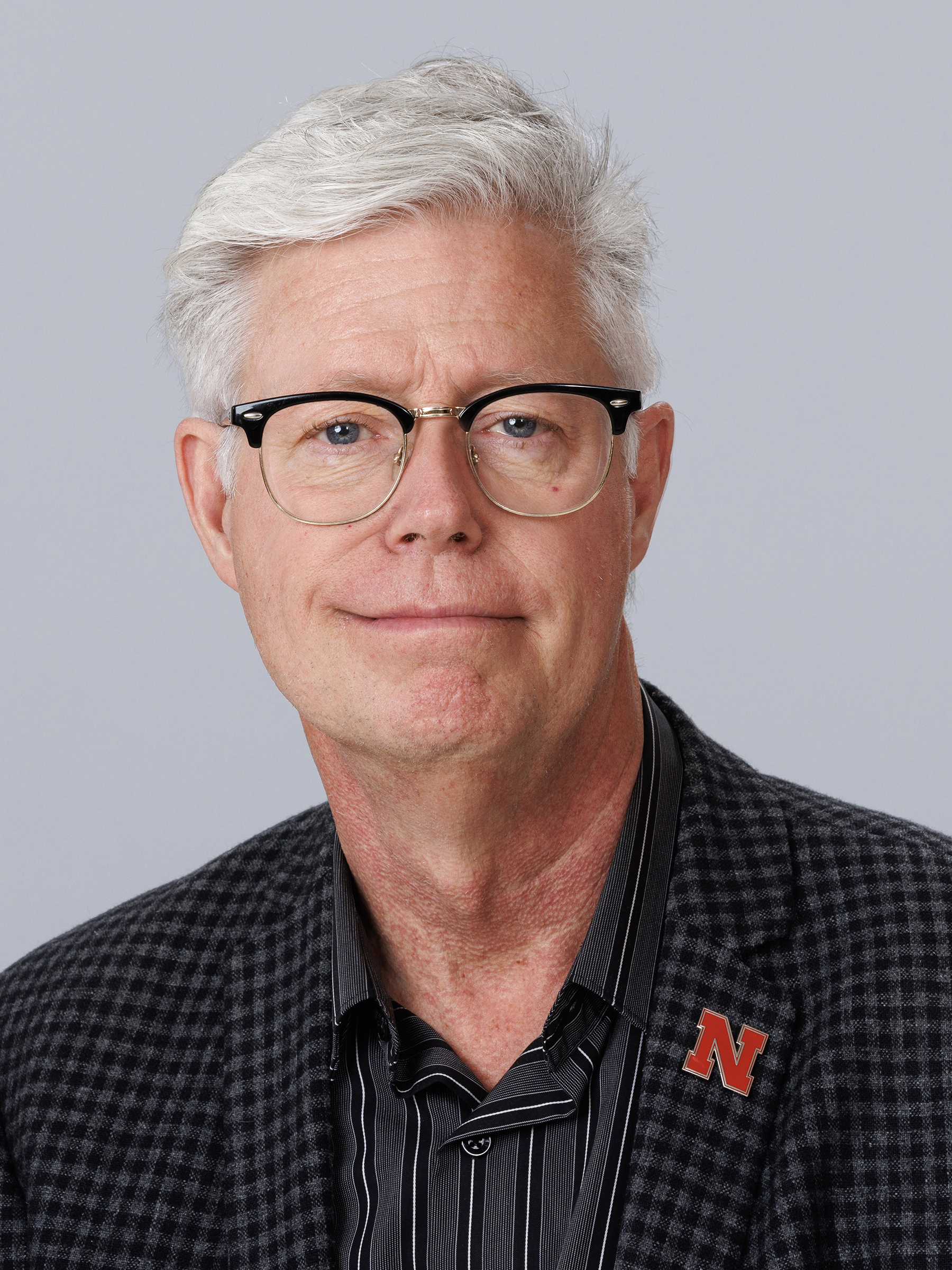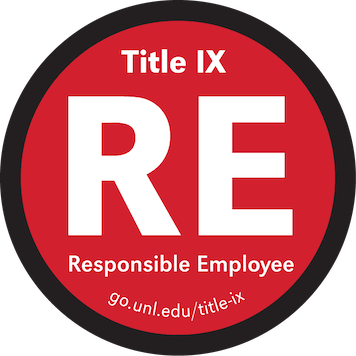Peter A. Eklund is the current President-Elect of the UNL Faculty Senate, a Hixson-Lied Endowment Professor of Music, was recently named one of the national quarter-finalists for the first-ever GRAMMY® NATIONAL MUSIC TEACHER OF THE YEAR (out of over 30,000 nominees) and was a national finalist for the NFHS Outstanding Music Educator in 2019. He annually conducts instrumental and choral ensembles in no fewer than eight European countries and throughout North America. One of the most active and versatile international conductors today, Peter A. Eklund possesses a unique ability to work effectively with musicians at all levels of performing capability and experience. His concertizing/clinician schedule averages 60 national and international concerts annually and includes a wide array of scholarly, professional, orchestral, collegiate, liturgical, festival, all-star, and youth/student ensembles throughout North America and Europe. Trained as a classical pianist and organist in the finest traditions of Western historical music, he now is also a strong advocate for ethnic and world music spanning all genres. He counts among his early musical influences the numerous local concerts that his grandfather took him to of Big Band performances by Count Basie, Stan Kenton, Woody Herman, and others.
His academic choirs have performed on numerous American Choral Directors Association regional and national conventions where their frequency of performance set unprecedented national records (over 30 MENC—now NAfME—and ACDA regional and national invitations). Eklund has conducted his choirs in many of the world's greatest performance venues including, Carnegie Hall (numerous times), Washington DC's Kennedy Center Concert Hall, the National Cathedral and Shrine of the Immaculate Conception (both numerous times), Orchestra Hall in Minneapolis (on four occasions), St. Mark's Basilica in Venice, Christ Church in Oxford, St. Paul's Cathedral in London, Westminster Abbey, Mozart's Salzburg Cathedral (where he conducts yearly), Paris's Notre Dame, St. Stephen's Cathedral in Vienna, St. John the Divine and Alice Tully Hall in NYC, the abbey church of St. Hildegard von Bingen, Sagrada Familia in Barcelona, and in other famous major cathedrals in Prague, Milan, Bordeaux, Monaco, Munich, New York, Chicago, London, Coventry, Canterbury, Chartres, Reims, Rouen, Metz, Regensburg, Strasbourg, Paris, Rome, Florence, LeMans, and Verona plus abbeys, kings' private chapels, chateaus, major churches, and performance halls in Cambridge (UK), Stratford on Avon (UK), Mt St. Michel (Normandy, France), Chantilly (France), Versailles (France), Chambord (France), Lucerne (Switzerland), and Bratislava (Slovakia).
Dr. Eklund studied conducting and score-study with American Ditson Conductor's Award winner and International Mahler Medal-winner James A. Dixon, American Choral Directors Association past-president (and University of Nebraska–Lincoln Distinguished Alumnus) William Hatcher, and nationally-recognized scholar/conductor/author/pedagogue/administrator Don V Moses, all at the University of Iowa. Current and recent engagements include(d) conducting All-State choirs in over two dozen states, master classes and adjudicating/clinic work in nearly every State, collaborating with NETV on a state-wide collegiate choral broadcast (nominated for regional Emmy), conducting a regional ACDA honor choir, and directing a summer youth honor choir trip to ten countries.
He divides his time among four important roles: conductor, guest lecturer, editor/arranger (his own choral series with Santa Barbara Music Publications and Colla Voce—and his set of Moses Hogan arrangments is published by Hal Leonard), and teacher/mentor (with numerous former students performing professionally on both US coasts: Broadway, Lincoln Center, TV, and Oscar winning movies—and everywhere in between), and is Professor and Director of Choral Activities at the University of Nebraska–Lincoln, where he heads the Masters and Doctoral choral conducting programs, conducts the University of Nebraska flagship mixed choral ensemble—the nationally recognized 'University Singers,' and conducts the nationally renowned University of Nebraska 'Varsity Men's Chorus' (both national MENC selected performance ensembles, the former in 2002—Nashville and the latter in 2004—Minneapolis). His other publications are found at Hope Music, Concordia Publishing House, and Kimmel Publishing. However, his greatest role of all is that of husband to Teresa and father of their four sons: Ben, Bryant, Brady, and Brantley.
In his spare time, he is an occasional golfer (actually having scored a hole-in-one), enjoys the tracker pipe organ in his home, and is a reluctant but diligent gardener overseeing their backyard acres.
Prior to coming to Nebraska, Eklund taught for over a decade at Thomas Jefferson High School in Cedar Rapids, Iowa, where he and his wonderful colleague, Carol Tralau, built what Maestro Robert Shaw said was the finest high school choral program in America (Eklund, Tralau, and Shaw all conducted on the same North Central ACDA conference with Eklund’s choir directly preceding Shaw’s final performance of Britten's War Requiem with the Minnesota Orchestra in Orchestra Hall).
In spite of being a champion of new, innovative, and cutting-edge 21st Century literature, once coming to the University of Nebraska, Eklund's choirs have also focused on the greatest literature of the entire genre, as he has conducted performances (or prepared his University of Nebraska singers for collaborative performances) of: JS Bach's B Minor Mass, the Britten War Requiem, Hindemith's Requiem When Lilacs Last in the Dooryard Bloom'd, Verdi's Requiem, Stravinsky's Symphony of Psalms, Bernstein's Chichester Psalms, the world premiere of the new Bärenreiter edition of Liszt's Christus, Handel's Messiah, Walton's Belshazzar's Feast, Tallis's 40-voice part Spem in Alium, a fully staged version of Mendelssohn's Elijah, Mendelssohn's Psalm 42, and 4-choir Hora est, Mozart's Requiem, Orff's Carmina Burana (3 times), Puccini's Messa a quattro voci, Ravel's Trois Chanson, Haydn's Missa brevis Johannes de Deo, Paukenmesse, Harmoniemesse, Lord Nelson Mass, Kodaly's Missa Brevis, the Schutz Psalmen Davids and his Musikalische Exequien, Honegger's King David, Fauré's Requiem, the Duruflé Requiem (twice), Dvorak's Mass in D, Debussy's, Ravel's, and Badings' versions of their Trois Chanson, Beethoven's Mass in C and the Ninth Symphony, the Brahms Requiem (3 times in both German and English), Carissimi's Jephthe, Bruckner's Mass in E minor and Psalm 150, Britten's Rejoice in the Lamb, both the French and Latin Choruses from Bernstein's The Lark, Jongen's Mass, Op. 130 for chorus, organ, and brass, and many of Bach's motets and cantatas plus many, many other well-known and leading/cutting-edge major works; clearly a list that is second-to-none.
Teaching Philosophy: When working with musicians of all ages, nothing is more important than the instrumentalists' & singers' preservation/health, education, work ethic, and life-enrichment. Musicians in our ensembles know that they will vocalize and make music in a healthy manner that will assist them in all areas of professional music-making, as a result of performances of literature of the highest intellectual/artistic standards, and work in rehearsal situations and lab settings that will encourage professionalism, self-analysis, and advanced musicianship. Both performers and conductors alike will be schooled in efficient rehearsal technique, subtle informed performance practice geared for both the 21st-Century performer and listener, voice pedagogy, intelligent musical nuance, advanced interpretation, age-appropriate tone production, and other aspects of professional music-making. Subtle conducting gestures will always allow the audience to focus on the performers. And these minute gestures will also allow the listener to focus on the composers' innate intentions. The greatest performances allow the listener to focus on the music, the marriage between lyric and line, the message, the performer/musician, and the art, not the conductors or the conductors' gesticulations. Beginning and advanced students who share the love of music-making at the highest and most advanced level are a joy to instruct and nurture.
What do you enjoy the most about being on the faculty at the Glenn Korff School of Music?
Eklund: I fully enjoy the collegiality and professionalism of this very talented performer/artist/teacher/scholar faculty and our music school. Studios are filled with full-time professors who are dedicated to their students and craft. It is very much unlike the majority of other schools where many of their instructors are part-time and most often not on campus. I enjoy the way we take care of our students.
What do you want others to know about the Glenn Korff School of Music?
Eklund: One of the parents of a visiting student recently said to me “A big school can feel small but a small school cannot feel big." I thought that was very astute and appropriate. Our students here get absolute first-rate individual instruction but they also get to do activities and enjoy experiences that only the top music schools also get to do. Small schools can’t accurately say that. Small schools also would want you to think that people like me teach classes of 300. We don't have those classes here in music and I teach a class of six.
What are you most proud of in the area you work for the Glenn Korff School of Music?
Eklund: I am most proud of the successes of our students. 100% of our doctoral students who graduate in my area have full-time conducting employment!!! Any undergraduate music education student who is capable of being somewhat flexible in locating for their first job will get a GREAT job—they will be fully equipped to succeed.
What do you like to do outside of the Glenn Korff School of Music?
Eklund: I enjoy spending a great deal of time traveling to our alum's schools and places of employment to support, applaud, mentor, and appreciate. The relationship that we build with our students does not last only through their time here on campus. We've invested in them, they have invested in their University, and we certainly want to see them succeed. Success is helping others succeed.
Anything else you would like to add?
Eklund: I fully believe that a degree from a major well-known University like UNL will provide a more significant launching pad into professionalism and a great career. Any person doing the hiring will know that if you can succeed in a large environment like this, you will be equipped to succeed almost anywhere. Employers fully realize this. All of my degrees are from a Big 10 institution and it was the smartest decision I ever made in my life.

